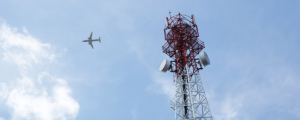
State-run Bharat Sanchar Nigam Limited (BSNL) has requested a reimbursement of Rs 99 crore from the government to cover additional operations and maintenance (O&M) costs resulting from delays in the delivery and commissioning of Evolved Node B (eNB) by the supplier. “Based on the delivery and commissioning progress of eNB from TCS/ITI, it is anticipated that there will be a delay in BTS installation at around 9,000 sites where BSNL will be required to start O&M,” Reena Malhotra, GM (NWP-SP), BSNL, stated in a letter to the Administrator of the Universal Service Obligation Fund (USOF) at the Department of Telecommunications (DOT).
She noted delays in the installation and commissioning of the core network in four zones by TCS, which could persist for an average of six months. “The first core in the north zone is expected to be installed by June 2024, causing delays in the commissioning of sites under the 4G saturation project.” The consortium, led by Tata Consultancy Services (TCS), is supplying an indigenously developed 4G solution to BSNL, with contributions from the state-owned Centre for Development of Telematics (C-DoT) and Bengaluru-based Tejas Networks, providing core and radio equipment, respectively.
Malhotra further mentioned that BSNL is continuing with the installation and commissioning of towers and passive infrastructure to enable TCS to quickly deploy eNB once the equipment is received. Describing the situation as “beyond BSNL’s control,” she urged the telecom department (DOT) to compensate the public sector telco for the additional O&M costs, approximately Rs 55,000 per site for two quarters, across about 9,000 sites.
She emphasized that the delay is expected to average six months. “It is kindly requested to examine the case and approve reimbursement of Rs 99 crore towards additional O&M charges being incurred by BSNL,” Malhotra added. On July 27, 2022, the Centre had approved a project to extend 4G mobile services to uncovered villages across the country, with a total cost of Rs 26,316 crore.
The project aims to provide fourth-generation (4G) mobile services in 24,680 uncovered villages in remote and challenging areas, with provisions to include 20% additional villages due to rehabilitation, new settlements, withdrawal of services by existing operators, and other reasons. Additionally, 6,279 villages with only 2G or 3G connectivity will be upgraded to 4G. BSNL is executing this project with funding support from the USOF.



